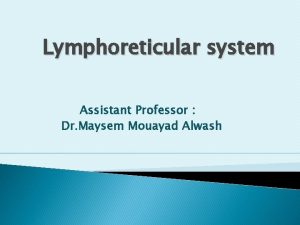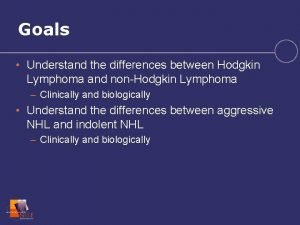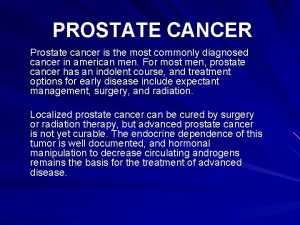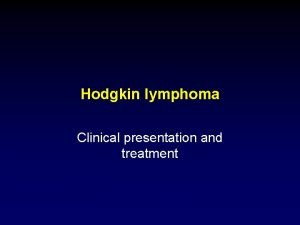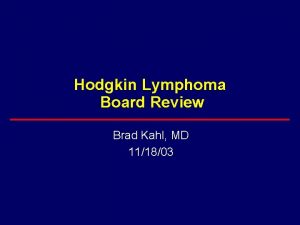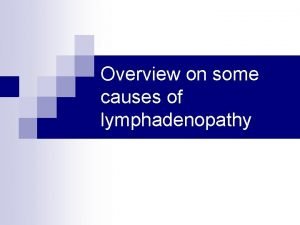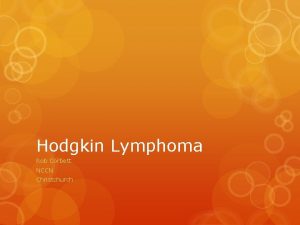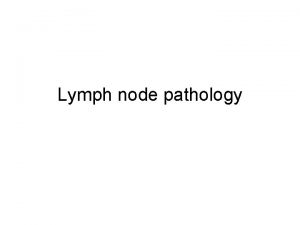Social deprivation gender affect incidence of Hodgkin lymphoma







- Slides: 7

Social deprivation & gender affect incidence of Hodgkin lymphoma in children & young adults Dr Richard J. Q. Mc. Nally, Reader in Epidemiology, Institute of Health and Society, Newcastle University Richard. Mc. Nally@ncl. ac. uk

Introduction • We do not have a clear understanding of the causes of Hodgkin lymphoma (HL) in children & young people (ages 0 -24 years) • Better understanding by focus on subtypes • 2 aims: • Examine incidence of HL subtypes by age & sex • Assess possible associations with area-level socioeconomic deprivation

Methods • Data on cases extracted from specialist registry from northern England – population 2. 6 million, 30, 000 births / year • 621 cases of HL diagnosed in 0 -24 year olds from 1968 to 2003 • Population & socio-demographic data obtained from censuses • Calculated rates & used statistical models to investigate associations with deprivation

Results • Subtypes – nodular sclerosis (NS) = 247, mixed cellularity = 105, lymphocyte rich = 58, others = 68, Not Otherwise Specified (NOS) = 143 • Overall HL more common in males • HOWEVER, reversal for NS aged 20 -24 – with 72 females & 55 males

Continued • Deprivation calculated using 4 components of the Townsend deprivation score • Decreased incidence of NS subtype among patients living in areas with more overcrowded households • For NOS – reverse seen – but may be a chance finding as heterogeneous group • No effect for other groups

Conclusions • Results for NS subtype suggest that recurrent infections in exposed children may provide protection against this type of HL • The female excess at age 20 -24 years is also very interesting – suggests that oestrogens may be responsible in some way • Further research is needed – such as casecontrol or epigenetic studies

Thank you • North of England Children’s Cancer Research Fund – for providing financial support • Professor Mehmet Tevfik Dorak (co-author) – Liverpool Hope University
